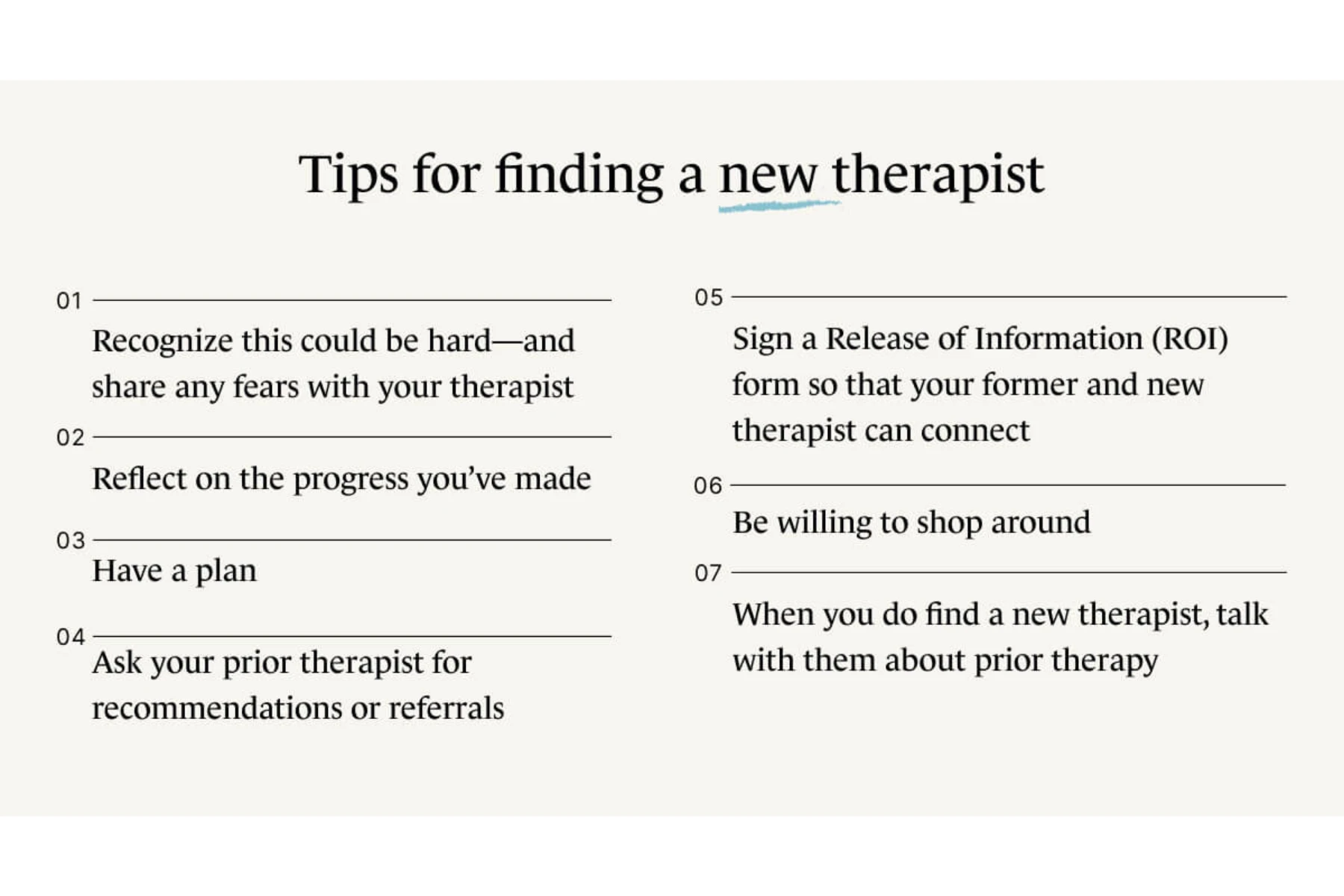Being in a long-term relationship with your therapist is usually a pretty good sign that you’ve found the right person to talk to. You leave sessions feeling heard, understood, and you have even more clarity (and a few strategies) on how to deal with the messiness and complexities of life. Your therapist knows your story, your anxieties, and your vulnerabilities, and you generally trust their judgment. But what happens if you move to a new city or state? Do you have to start over with someone new? What do you do when you’ve made a lot of progress with one therapist and aren’t able to see them anymore?
1. Recognize this could be hard—and share any fears with your therapist.
Your therapist likely knows more about you than your closest friends, and letting go of that kind of intimacy is painful. These feelings are worth expressing to your therapist! After all, they’ve helped you work through uncomfortable situations in the past. This transition is another hurdle they can help guide you through.
2. Reflect on the progress you’ve made.
Take inventory of the tools and strategies you’ve learned while under your therapist’s care. This not only provides a much-needed bump of confidence during your move, but it can also help you find some closure around the ending of the relationship. Appreciating the growth they’ve helped you achieve will show you how prepared you actually are to move on without them.
3. Have a plan.
Discuss whether telehealth or virtual sessions are an option until you get settled in your new home. Moving is a huge disruption so you may want to keep as much of your life as routine as possible for as long as you can until you’ve established your new base. Either way, it’s a good idea to decide on a date by which you want to have started therapy after you land in your new city. This is a practice of staying accountable to yourself and your mental health.
Thinking about what made the prior relationship work can make it easier for you to identify similar qualities in your next therapist. Below, SimplePractice Education Director and licensed marriage and family therapist Dr. Ben Caldwell adds four more pieces of advice based on his nearly fifteen years of experience.
4. Ask your prior therapist for recommendations or referrals.
The world of therapy can be surprisingly small sometimes so your prior therapist may either have personal connections in your new area. If not, perhaps they can use their network to find someone who approaches treatment in the same way they do.

5. Sign a Release of Information (ROI) form so that your former and new therapist can connect.
Not only is this good for sharing records, but the prior therapist can also share their thoughts about why the prior therapy was so effective.
6. Be willing to shop around.
Even if a new therapist comes at the recommendation of the prior one, sometimes it's just not a great fit. Trust your gut. Sometimes it takes a few tries to find the right one to meet your needs—and those needs may have changed since you started with your prior therapist.
7. When you do find a new therapist, talk with them about prior therapy.
Some clients feel weird about doing that, as if it's somehow disloyal or awkward. But the new therapist will be very interested in knowing what you liked, what worked, and what you learned about how therapy can work best for you.
It might be daunting to think about starting from scratch with someone new and re-telling your whole life story, your behaviors and habits, the goals you’re striving toward, and more. But it doesn’t have to be. Prepare yourself for the undertaking by arming yourself with information, creating a plan, and above all, having compassion for yourself. Don’t rush the process. Finding the right person is the best way to start off on the right foot in your new home.








